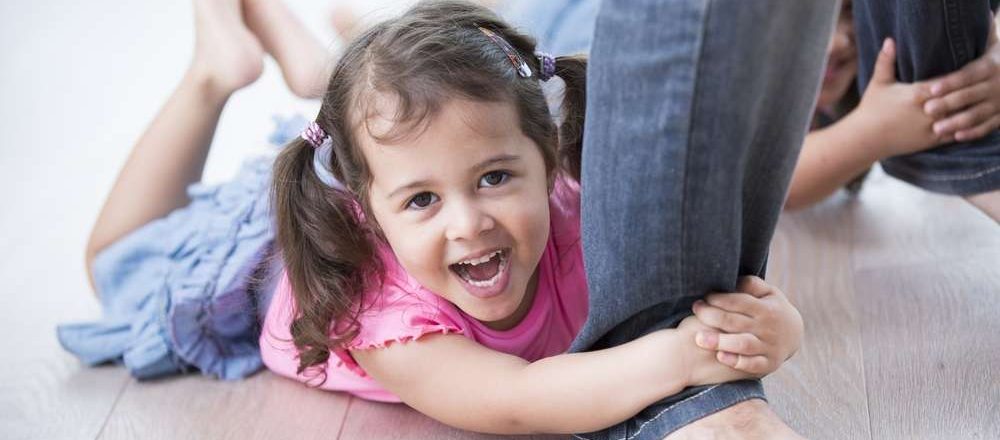Separation anxiety is normal in early childhood and can occur when a child gets upset when separated from a parent or carer. This can happen when children are left with a new caregiver, or put to bed by themselves.
Separation anxiety is normal during early childhood. It usually starts at about six to eight months of age and lasts until about two and a half to four years of age. Sometimes it can last longer if the child has had any painful separations in the early years. Separation anxiety reflects the child’s attempts to hold on to what is safe in a very scary world, and it will settle down as the child grows older and more confident (Women’s and Children’s Health Network).
Helping children with separation anxiety
If your child is suffering from separation anxiety, there are lots of things you can do to help her.
In new places
- If you’re leaving your child in a new setting – child care centre, preschool, friend’s house, babysitter – spend time at the new place with your child before the separation. Your child will be less distressed if he’s left in a safe, familiar place with familiar people he trusts.
- Let your child take something she loves from home, like a teddy bear, pillow or blanket. These objects will help your child feel safer, and you can gradually phase them out as she feels more settled in the new place.
- Tell your child’s child care centre, preschool or school about his separation anxiety, and let them know about anything you’re doing to help your child. This way, other people in your child’s environment can give him consistent support.
- Gently encourage your child to separate from you by giving her practice. It’s important to give her positive experiences of separations and reunions. Avoiding separations from your child can make the problem worse.
When you’re leaving your child
- Tell your child when you’re leaving and when you’ll be back. This is helpful even with babies. Sneaking out without saying goodbye can make things worse. Your child might feel confused or upset when he realises you’re not around and might be harder to settle the next time you leave him.
- Settle your child in an enjoyable activity before you leave.
- Say goodbye to your child briefly – don’t drag it out.
- Keep a relaxed and happy look on your face when you’re leaving. If you seem worried or sad, your child might think the place isn’t safe and can get upset too.
At home
- No matter how frustrated you feel, avoid criticising or being negative about your child’s difficulty with separation. For example, avoid saying things like ‘She’s such a mummy’s girl’ or ‘Don’t be such a baby’.
- Read books or make up stories with your child about separation fears – for example, ‘Once upon a time, there was a little bunny who didn’t want to leave his mummy in the hutch. He was afraid of what he might find outside …’. This might help your child feel he’s not alone in being afraid of separating from his parents.
- Make a conscious effort to foster your child’s self-esteem by complimenting her and giving her lots of positive attention.
In a care setting it can naturally take time to develop a relationship, and this is a good thing. For some children, they need to learn that they can trust the carers and the environment, and that their parents will come back consistently. The same as it takes time for adults to develop trust and a relationship with others, the same is for young children and even babies. The best approach is to be patient and consistent in your strategies as the vital relationships between children and carers, and between child to child grow. As these relationships strengthen, separation anxiety will begin to disappear.
The Educators at ToBeMe are very familiar with the separation anxiety that may occur for children and families. We are trained in a variety of techniques to help children and families when this occurs. If you have any concerns, please talk to your educator who will be delighted to assist you.
Sources:
Raising Children Network: http://raisingchildren.net.au/articles/separation_anxiety.html
Early Childhood Australia: http://www.earlychildhoodaustralia.org.au/parent-resources/separation-anxiety/
Additional Reading:
Kids Matter: https://www.kidsmatter.edu.au/mental-health-matters/social-and-emotional-learning/positive-separations-understanding
Comments are closed.






